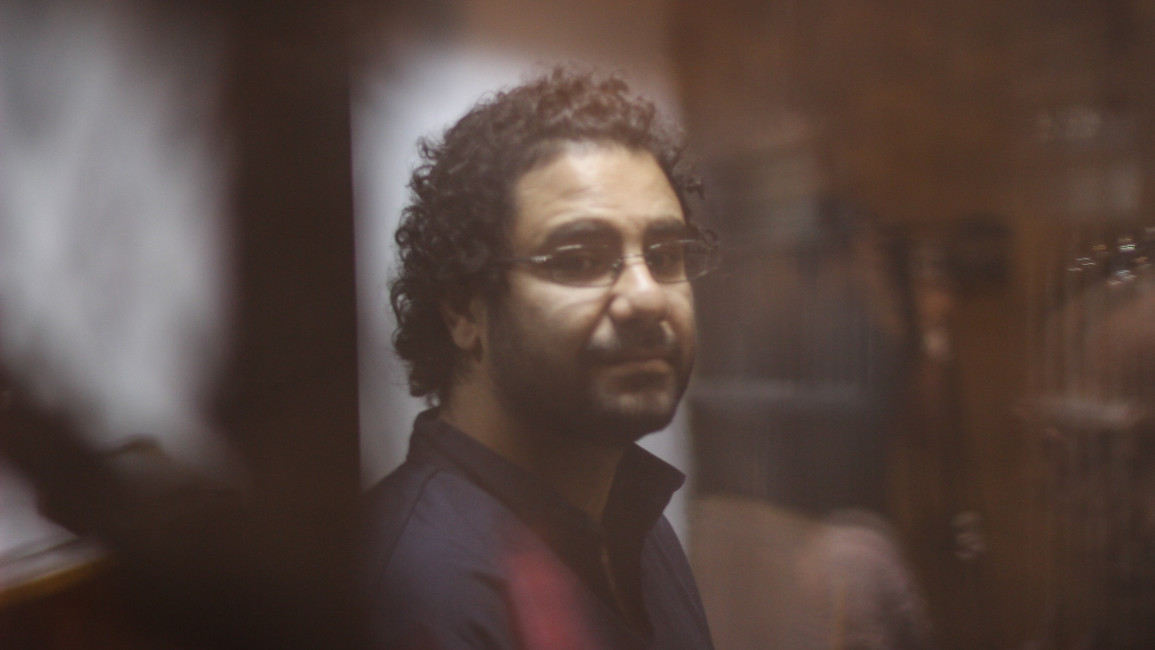Jailed Egyptian activist Alaa Abdel-Fattah allowed to exercise for first time in almost three years
Jailed Egyptian activist Alaa Abdel-Fattah was allowed out of his cell to exercise for the first time in nearly three years, his sister announced on Thursday.
Abdel-Fattah - who was arrested in September 2019 and is on day 84 of his hunger strike protesting prison conditions - was allowed out of his cell for 30 minutes alongside his cellmates, Mona Seif tweeted, citing letters her mother received.
Seif initially shared that her brother was allowed out in the sun, but shortly after corrected her mistake, disappointedly stating that he was only let out in "a big concrete hall with a covered ceiling".
علاء خرج تريض لأول مرة من سنتين و١٠ شهور يا بشر! 💃💃💃💃💃
— Mona Seif (@Monasosh) June 23, 2022
"He still gets time out and a chance to stretch his legs, so I will focus on the positive side of it… this wouldn’t have been possible without everyone’s help and pressure," Seif said in a thread of tweets.
Seif highlighted the disparity between the requirements of Egyptian law - which says that all inmates should have two hours of daily exercise - and the time given to Abdel-Fattah, but said the development "is a step" in the right direction regardless.
Abdel Fattah – who was a key figure in Egypt’s 2011 uprising - was sentenced in December to five years in jail after being convicted of "broadcasting false news".
However, he had already been in pre-trial detention since September 2019 - when he was arrested after having been caught up in a wave of arrests that followed the 2019 'Palacegate' protests - before the sentencing.
Rights groups have denounced Abdel-Fattah’s trial as unjust.
He is one of some 60,000 political prisoners currently held in Egypt.



